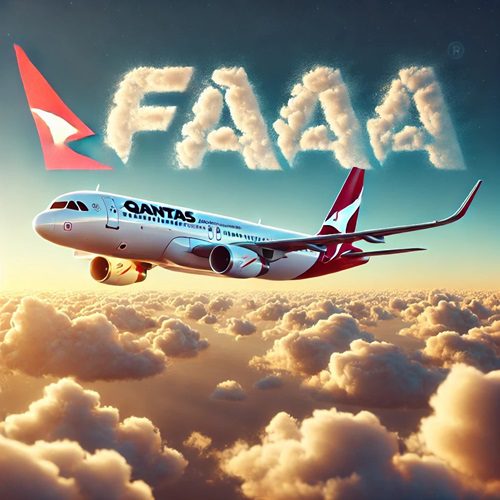![]() In a landmark development set to reshape the landscape of Australian aviation, Qantas and the Flight Attendants’ Association of Australia (FAAA) have reached a pivotal in-principle agreement, ensuring significant pay increases and improved working conditions for international cabin crew. This deal, resulting from extensive negotiations, signals a new chapter in the airline’s relationship with its workforce, especially as it embarks on ambitious ventures such as “Project Sunrise.”
In a landmark development set to reshape the landscape of Australian aviation, Qantas and the Flight Attendants’ Association of Australia (FAAA) have reached a pivotal in-principle agreement, ensuring significant pay increases and improved working conditions for international cabin crew. This deal, resulting from extensive negotiations, signals a new chapter in the airline’s relationship with its workforce, especially as it embarks on ambitious ventures such as “Project Sunrise.”
A Transformative Deal for Cabin Crew
The agreement, which will soon be presented for a vote by cabin crew members, marks a decisive shift in Qantas’ approach to labour relations. At its core, the deal offers Australian-based international cabin crew the opportunity to work on the new Airbus A350 aircraft, a key component of Qantas’ Project Sunrise initiative. This move is a significant boost to cabin crew morale and an affirmation of job security in an industry that has faced unprecedented challenges in recent years.
Teri O’Toole, FAAA Federal Secretary, expressed optimism about the agreement, stating, “This deal is more than just a pay rise; it’s a restoration of trust and respect between Qantas and its international cabin crew. We are hopeful that this agreement marks the beginning of a renewed and constructive working relationship with the airline’s management under its new leadership.”
The negotiations culminated in a variation to the existing Enterprise Agreement, which, according to O’Toole, achieves a delicate balance between meeting the financial needs of cabin crew and ensuring Qantas remains competitive globally. The deal includes provisions for pay increases of up to 30% and enhanced working conditions, set to take effect on November 1, 2024.
Government Reforms: A Catalyst for Change
O’Toole quickly acknowledged the role of the Albanese Government’s industrial relations reforms in facilitating this agreement. The Closing the Loopholes legislation, a vital initiative of the current government, was instrumental in bringing Qantas to the negotiating table. “Without the government’s intervention, we would unlikely have seen such a positive outcome for our members. This legislation has empowered us to secure a deal that truly benefits the cabin crew,” O’Toole remarked.
The agreement also includes unique conditions negotiated by the FAAA, which go beyond the current legislative framework. These conditions are designed to ensure that cabin crew do not have to sacrifice existing entitlements to secure better pay—a significant departure from previous labour negotiations within the airline.
A Historic Shift in Employment Practices
One of the most groundbreaking aspects of the agreement is Qantas’ commitment to integrate employees of its subsidiary, QF Cabin Crew Australia Pty Ltd, into direct employment with the parent company. This move is being hailed as a historic moment for the affected crew members, who have long felt marginalized under the existing labor-hire arrangement.
“This is a significant victory for our members who have, for too long, been treated as second-class citizens within their own industry,” said O’Toole. “Bringing these employees into direct employment with Qantas is not only a matter of fairness but also a crucial step towards closing the loopholes that have been exploited across the airline industry.”
The FAAA has also proactively sought reforms, filing three Regulated Labour Hire Arrangement Order applications covering Qantas’ domestic operations. Qantas has indicated that it will not oppose these applications, signalling a broader commitment to improving labor practices.
Looking Ahead: Ensuring Fairness for All Cabin Crew
As Qantas and the FAAA look to the future, the focus now shifts to securing similar benefits for domestic cabin crew, currently employed under less favourable conditions by labour-hire firms. O’Toole has clarified that the FAAA’s next priority is ensuring fairness and equity for all Qantas cabin crew, regardless of their employment arrangement.
“Our work is far from over,” she asserted. “We are committed to delivering a fair deal for Qantas domestic cabin crew, who deserve the same respect, pay, and working conditions as their international counterparts.”
The historic agreement between Qantas and the FAAA is more than just a win for cabin crew—it’s a testament to the power of collective bargaining and the impact of government-led industrial reforms. As the aviation industry continues to navigate the challenges of a post-pandemic world, this deal sets a new standard for labour relations that prioritizes fairness, security, and mutual respect.
Written by: Octavia Koo



















